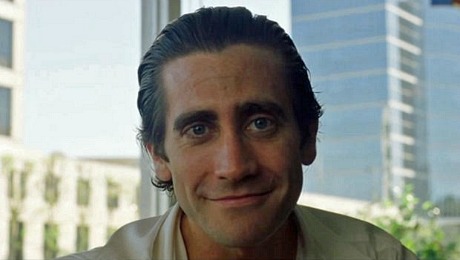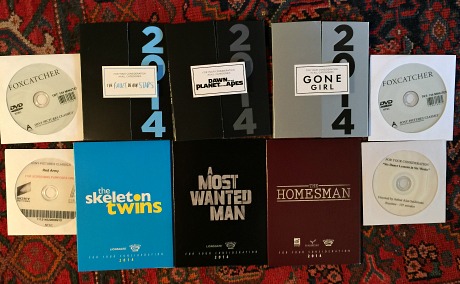A recent Hollywood Reporter FYC trade ad for Dan Gilroy‘s Nightcrawler uses a misleading photo of Best Actor contender Jake Gyllenhaal, who plays a personable if sociopathic video-shooter named Lou. Jake looks a little Phantom of the Opera-ish, like a fiendish John Carradine on the campaign trail, but that’s not what he projects in the film. Lou’s vibe is open, eager, ultra-polite and all but inhuman. The second shot is his trademark expression, which is all about projecting “empathy” and “sincerity.”





